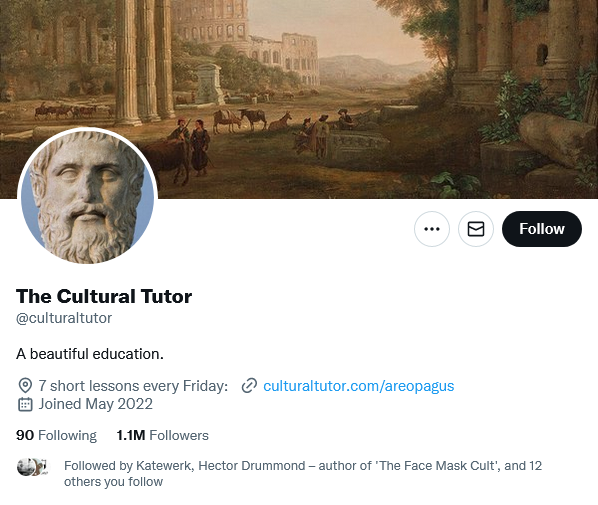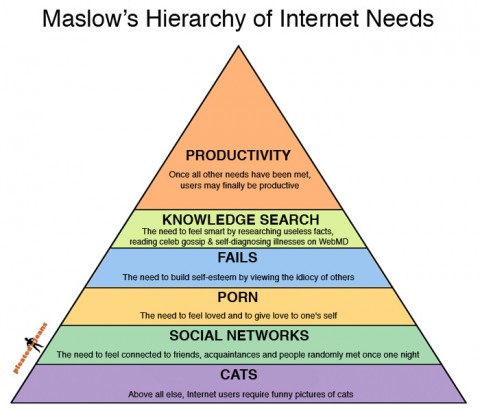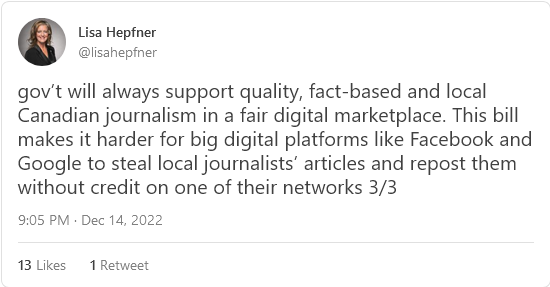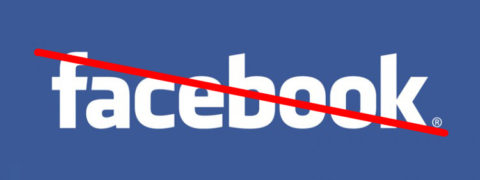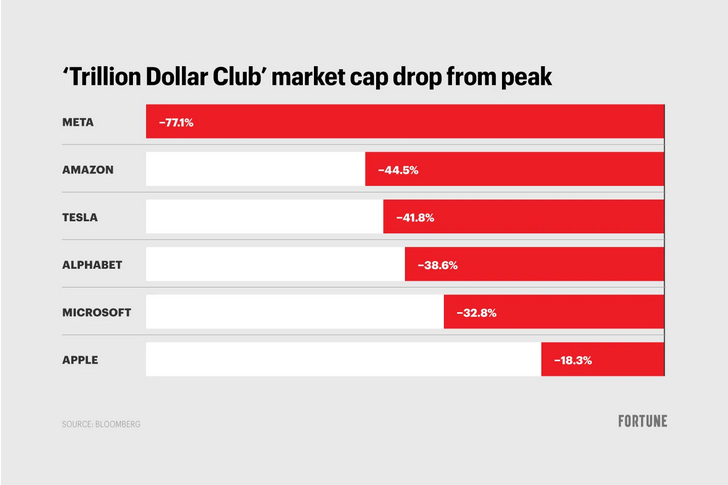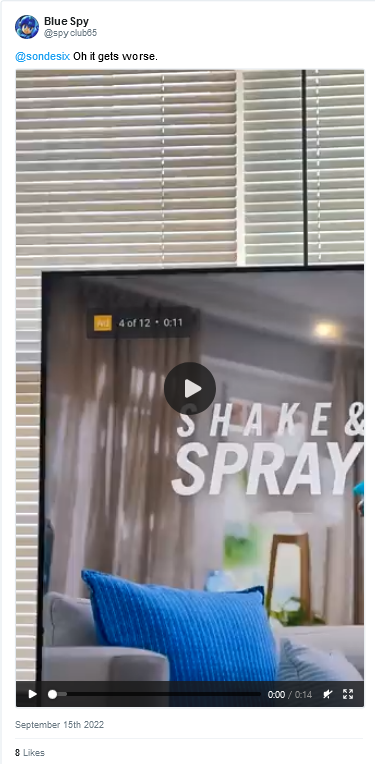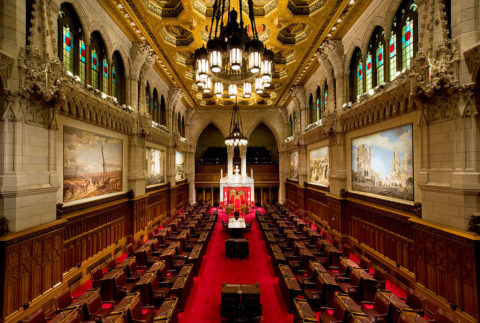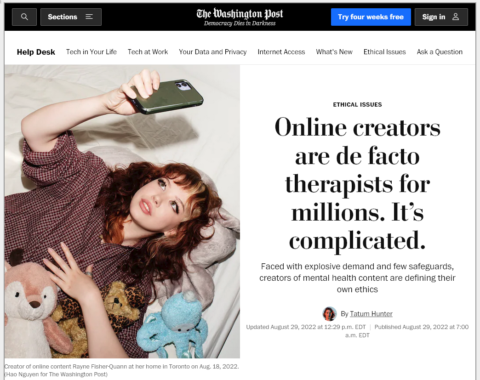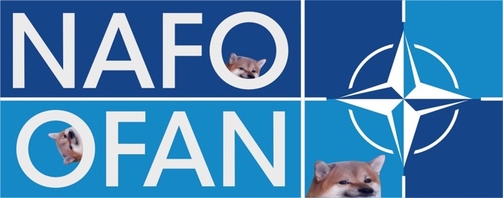spiked
Published 27 Jan 2023Tom Slater, Fraser Myers and Ella Whelan discuss the World Economic Forum, men in women’s prisons and Facebook’s unbanning of Donald Trump. Plus, Timandra Harkness explains the dangers of the UK’s Online Safety Bill.
(more…)
January 30, 2023
Eff the WEF | The spiked podcast
January 21, 2023
A club for autodidacts?
Ed West regrets the lacunae in his knowledge of many things, which I suspect also describes a lot of my blog visitors (given how often my own autodidactic web explorations end up here or on my social media accounts). His proposed solution is a club to study the western canon:
I’m ashamed of how little I know about a lot of things. Classical music, for instance, is a huge ocean of unknowns to me. I appreciate it, and I would like to know more, but it still feels like a language in which I have only the barest of vocabulary.
I’m so clueless and lightweight on that front that my favourite classical music LP when I still had a record player was a double album which told you which advert each piece was from (“The Hovis advert with the boy walking up the hill” for Dvorak, “the Hamlet cigar ad with Gregor Fisher” by Bach).
My knowledge of poetry is quite poor, too, and I wish I could recite more of it, rather than, say, the lyrics of the first seven Iron Maiden albums I learned off by heart at 13 (nothing against Iron Maiden, I still love them, but I’ve found this a slightly less useful skill down the years when trying to impress people).
Poetry has never been my thing. I enjoy hearing others read poetry, but there’s always something that prevents me from reading poetry on the printed page and “getting” the rhythm of it for more than a stanza or so. However, with song lyrics the underlying music provides sufficient support that I undoubtedly know far more lyrics by heart than any other kind of poet-created text.
YouTube is full of videos following in George Birkbeck’s tradition of adult learning. There are podcasts like Peter Adamson’s History of Philosophy Without Any Gaps or The Partially Examined Life. One of the most popular Twitter accounts at the moment is The Cultural Tutor, with over a million followers, producing threads on the art, architecture, music and literature you should know about. People really want to learn this stuff, and regret that they were never made to do so earlier.
Some of this is due to the education system, although I don’t want to be one of those tedious people who go on Twitter and blame the curriculum for the gaps in their knowledge of history: “why weren’t we taught about the Second Schleswig war in school? Why am I only learning this now?” as if their teachers had thousands of hours spare rather than a very limited amount of time. But it’s also true that most people leave the British state education system knowing very little about the western canon, and are afterwards playing catch-up with a less absorbent mind.
In my case, with a couple of exceptions, the way that history — especially Canadian history — was taught in school seemed to be deliberately made as bland and uninteresting as possible … we of course skipped over most of the battles and campaigns so we could concentrate on the diplomats and treaties. Steve Sailer noted a similar phenomenon in US schools:
In Europe, anthropologists have promoted the “pots not people” theory to argue that trade and changes in fashion must explain why Corded Ware pots suddenly showed up all over Europe about 4,900 years ago. (So did battle axes; indeed, early scientists called this the Battle Axe Culture. But that sounded too awesome. Hence, more recent academics renamed it after its pottery style to make these brutal barbarians sound dweebier and thus less interesting to boys.)
Oddly, we were at least given some minimal insight into the plight of First Nations children in the residential school system which was not true when my son went to school a generation later. I’m still puzzled about that change in the curriculum. But back to Ed’s proposal:
Perhaps the main reason is that there already aren’t enough people who know about these things to teach in the first place, and who are also willing to endure the strain of having to keep order among an unwilling audience. So the knowledge does not get passed on, and public culture becomes ever more lowbrow.
But while it’s a hopeful sign that so many people go online to learn these things, my take-away from lockdown is that in-person is always better — going to something live, meeting people face to face, allowing your sensory perception to aid the learning process. I also believe that the more clubs and institutions we have, the healthier and happier our society.
That is why I’m proposing an idea, for a sort of club where people come and listen to talks about a particular feature of the western canon — Virgil, Goethe, Milton, Van Eyck, whatever — and fill in all these enormous holes in our knowledge. It would be a bit like an old-fashioned salon, or a Lyceum club. Although there are local salons still running, this would ideally be national. This canon club — I’m open to suggestions for a different name — would initially start in one city, presumably London, but if there was further interest we could help set up branches across Britain (and then even maybe abroad). Each local club would run semi-independently, but the wider organisation would help with arranging speakers and so on.
I see his point, but in my experience a lot of autodidacts are also rather introverted by nature so a physical salon or club with a lot of strangers might be less appealing than some of the existing online options.
January 6, 2023
December 29, 2022
QotD: That foolish optimism of the early days of the internet
Thirty years ago, at the dawn of what we think of as the internet, no one imagined that this amazing new frontier in human interaction would become a tool of oppression wielded by massive corporations. In fact, it was assumed that the internet would break the grip of corporations, special interests, and even governments. People would be free of the gatekeepers who controlled public discourse.
Those we call the left were sure that the internet would help democratize American society by opening the floor to marginalized voices. The people we call the right were sure this new medium would follow the pattern of talk radio. Free of progressive control, normal people could challenge the opinions of the liberal media. The internet was going to be an open debating society that worked on democratic principles.
Thirty years on and people old enough to remember the before times think that maybe the internet was a mistake. Giving a platform to millions of talking meat sticks, banging away at their phones, has just made life noisy. Worse yet, the range of allowable opinion has become much narrower. We now live in an age of censorship that was unimaginable before the internet.
The Z Man, “Coercion and Consensus”, Taki’s Magazine, 2022-09-25.
December 23, 2022
Remember when ending “Net Neutrality” was going to be the death of the internet?
Peter Jacobsen answers a reader question about the now almost forgotten doomsday scenario for the internet that was the ending of “Net Neutrality” in 2017:
To answer this question, we have to wind back the clock to 2017. Then-chair of the Federal Communications Commission (FCC) Ajit Pai successfully led an effort to repeal a set of 2015 regulations on Internet Service Provider (ISP) companies originally put into place by the Obama Administration.
The simplest summary of net neutrality regulations is that they required ISPs to enable access to content on the internet at equal speeds and for equal costs. For example, your ISP charging you to get faster speeds on YouTube or blocking High Definition access on Netflix would be examples of violations of net neutrality.
The idea of paying your ISP extra to have access to certain websites is a scary one, but it appears the worst fears associated with the end of net neutrality were overstated. To some extent proponents of net neutrality are the victim of their own apocalyptic marketing.
The Rumors of the Internet’s Death Were Greatly Exaggerated
If you spent any time on the internet during the death of net neutrality, it was hard to miss it. On July 12, 2017 websites across the internet coordinated their messages for the “battle for the net.”
Websites including Amazon, Netflix, YouTube, and Reddit called their users to fight for “a free and open internet”.
On Twitter, #SaveTheInternet thrived, seemingly implying the internet itself was facing an existential threat.
The repeal of #NetNeutrality officially goes into effect today, but the fight is far from over.
The people saying we can’t pass the resolution to #SaveTheInternet in the House are the same people who were saying we couldn’t do it in the Senate.
Ignore them. Just keep fighting.
— Ed Markey (@SenMarkey) June 11, 2018
After the decision by the FCC, CNN briefly declared it was “the end of the internet as we know it”.
Unfortunately for all kinds of doomsday prophets, extreme rhetoric always looks silly in hindsight when it fails to pan out.
Obviously we aren’t seeing ISPs charge users different amounts to use different websites in any systematic way. There’s no “pay your ISP to access Hulu” package yet. So already it’s clear some of the doom and gloom was over-hyped.
Fears of ISPs offering “fast lanes” to make users pay more for better service don’t seem to have materialized either. The only example of this sort of thing I could find was a Cox Communications trial of an “Elite Gamer” service. But this service was unlike the “fast lanes” hyped up by net neutrality proponents in that it never offered a less throttled experience and would have been permissible under the old net neutrality rules.
One of the biggest concerns about the repeal of these regulations was that it would lead ISPs to favor their own services. For example, AT&T owns Time Warner and HBO Max. In theory, AT&T could silently throttle speed to competing streaming platforms like YouTube and Netflix, thereby destroying competition.
December 21, 2022
QotD: The Spoon Theory
The blogger Christine Miserandino, who has lupus, coined the term spoonie in a 2003 post called “The Spoon Theory”. A spoon, Miserandino explained, equates to a certain amount of energy. The Healthy have unlimited spoons. The Sick — the spoonies — only have a few. They might use one spoon to shower, two to get groceries, and four to go to work. They have to be strategic about how they spend their spoons.
Since then, the theory has ballooned into an illness kingdom filled with micro-celebrities offering discounts on supplements and tinctures; podcasts on dating as a spoonie; spoonie clubs on college campuses; a weekly magazine; and online stores with spoonie merch. In the past few years, spoonie-ism has dovetailed with the #MeToo movement and the ascendance of identity politics. The result is a worldview that is highly skeptical of so-called male-dominated power structures, and that insists on trusting the lived experience of individuals — especially those from groups that have historically been disbelieved. So what do spoonies need from you? “To believe; Be understanding; Be patient; To educate yourself; Show compassion; Don’t question”.
Spoonie illnesses include, but are not limited to, serious diseases like multiple sclerosis and Crohn’s disease, but also harder-to-diagnose ones that manifest differently in different people: polycystic ovary syndrome (PCOS), Rheumatoid arthritis (RA), endometriosis, postural orthostatic tachycardia syndrome (POTS), Ehlers-Danlos syndrome, dysautonomia, Guillain-Barré Syndrome, gastroparesis, and fibromyalgia. Another spoonie illness is myalgic encephalomyelitis — or chronic fatigue syndrome — which has now been linked to long Covid.
These illnesses are often “invisible”: To most people, spoonies may appear healthy and able-bodied, especially when they’re young. Many of the conditions affect women more frequently, and most are chronic illnesses that can be managed, but not cured. A diagnosis often lasts for a lifetime, while symptoms come, go, morph, and multiply.
Spoonies find community in having complicated conditions that are often hard to identify and difficult to treat. That’s why a lot of spoonies include a zebra emoji in their social media bios, borrowed from the old doctor’s adage: “When you hear hoof beats, look for horses, not zebras.” In other words: assume your patient has a more common illness, rather than a rare one.
The spoonie mantra might be: I am the zebra.
Although the term is relatively new, the spoonies fit into a long history of women having amorphous, hard-to-diagnose conditions. Since ancient times, women who were diagnosed under the general category of “hysteria” were prescribed treatments such as sex, hanging upside down, and the placement of leeches on the abdomen. Then, in the 19th century, the new field of psychoanalysis concluded that women with hysteria were not suffering from physical disorders, but mental ones. Whether the women’s inexplicable pain was a function of their brains or of their bodies — or of each other (see mass hysteria), or of the devil (see Salem, 1692) — has always been a fraught subject.
And then the internet arrived and created a 21st century version of Freud’s Vienna, in which everyone was always on the couch, perpetually the patient.
Suzy Weiss, “Hurts So Good”, Common Sense, 2022-09-06.
December 16, 2022
The Online News [Shakedown] Act passes the House of Commons
Michael Geist summarizes the farcical progress of Justin Trudeau’s legalized theft from the “tech giants”:
Later today, the House of Commons will vote to approve Bill C-18, the Online News Act, sending it to the Senate just prior to breaking for the holidays. While Canadian Heritage Minister Pablo Rodriguez and media lobbyists will no doubt celebrate the milestone, it should not go unremarked that the legislative process for this bill has been an utter embarrassment with an already bad bill made far worse. The government cut off debate at second reading, actively excluded dozens of potential witnesses, expanded the bill to hundreds of broadcasters that may not even produce news, denigrated online news services as “not real news”, and shrugged off violations of international copyright law. All the while, it acknowledged that mandated payments for links are the foundation of the bill with officials stating that individual Facebook posts accompanied by a link to a news story would be caught by the law. As for the purported financial benefits, the government’s own estimates are less than half those of the Parliamentary Budget Officer, who also concluded that more than 75% of the revenues will go to broadcasters such as Bell, Rogers, and the CBC. The end result is a bill that will undermine competition and pose a threat to freedom of expression, while potentially leading Facebook to block news sharing in Canada and Google to cancel dozens of existing agreements with Canadian news outlets.
As I’ve chronicled for months, Bill C-18 is the product of an intense lobbying campaign from some of Canada’s largest media companies. While the Globe and Mail broke from the pack at the last minute, years of one-sided editorials — even devoting full front pages to the issue — had its effect. Indeed, Canadian newspapers would be exhibit #1 for how government intervention in the media space has a direct impact on an independent press. From the moment of its introduction, the consequences were immediately obvious as payments for links serves as the foundation for a law that treats “facilitating access to news” as compensable. Canadians can be forgiven for thinking the bill is about compensating for reproduction of news stories. It is not, since the platforms don’t do that. Instead, it is about requiring payments for links, indexing or otherwise directing traffic to the news organizations who are often the source of the link itself. In most circumstances, recipients pay for the benefits that come from referral traffic. With Bill C-18, the entities providing the referrals pay for doing so.
Further, the bill is about far more than struggling Canadian newspapers as it expands eligibility into broadcasters such as the CBC, foreign news outlets such as the New York Times, and hundreds of broadcasters licensed by the CRTC that are not even required to produce news. The end goal is negotiated payments for links, backed by the threat of a one-sided arbitration process overseen by the CRTC in which the arbitration panel can simply reject offers if it believes it fails to meet the government’s policy objectives. That isn’t a commercial deal, it is a shakedown.
I’ve been operating on the assumption that the government is betting that the big internet companies won’t do the obvious and ban linking to any Canadian media outlet on their respective platforms, but the feds don’t have a great track record of predictions in recent years …
In a later post, Michael Geist illustrated the literal misinformation that was pushed by government MPs during Bill C-18’s path through to final reading by quoting some of Liberal MP Lisa Hepfner’s contributions:
Last month, Liberal MP Lisa Hepfner shocked Canadian online news outlets by stating that “they’re not news. They’re not gathering news. They’re publishing opinion only.” The comments sparked instant criticism from news outlets across the country, leading Hepfner to issue a quick apology. In the aftermath of the comments, Hepfner said nothing for weeks at Heritage committee studying Bill C-18. That bill passed third reading yesterday – I posted on the embarrassing legislative review – and Hepfner was back at it. Rather than criticizing online news outlets, this time she targeted the Internet platforms, saying the bill would make it “harder for big digital platforms like Facebook and Google to steal local journalists’ articles and repost them without credit.”
[…]
Hepfner’s comment not only provide a troubling example of an MP engaging in misinformation about links who has effectively labelled her own Facebook posts as theft, but strikes at the heart of the problem with Bill C-18. As government officials have acknowledged, the entire foundation of the bill is based on paying for links. In fact, when a proposal to remove links from the bill was raised at committee, government MPs described the change as a loophole and voted against it. In the case of the CBC links, the government confirmed that Hepfner could write about the availability of children’s medications (ie. “Great news! CBC reports a million bottles of pain medication are on the way”) but once she added a link to provide a source for the claim, Bill C-18 is triggered.
These examples highlight the absurdity of a law that treats links as compensable and MPs who equate those links to theft. To be clear, there is nothing wrong with Hepfner or anyone else providing a link to a story on greater availability of children’s medicine. In fact, the CBC story has effectively already been paid for by the public and should be shared widely without the government creating barriers to sharing that information. What is wrong that is ill-informed MPs have voted for Bill C-18, creating a framework in which the government is imposing a mandatory payment scheme for some platforms for hosting links. The bill is now headed to the Senate which will hopefully make the necessary amendments to set Hepfner’s mind at ease that her own Facebook posts do not make her an accomplice to theft.
December 7, 2022
November 8, 2022
The inevitable next act of the media subsidy game – “Before long we will be back for more”
In The Line, Peter Menzies outlines the state of play in the continued efforts of the federal government to pass C-18, a bill that will massively benefit certain media outlets … or convince the “tech giants” to pull out of the Canadian market altogether rather than pay the blackmail:
News Media Canada’s persistent campaigning finally produced its Holy Grail — Bill C-18. All might have been well for Torstar, Postmedia and Le Devoir except that once the flesh was thrown on the bones of the Act, broadcasters that aren’t facing economic peril heard the dinner bell and came running.
The result, according to the Parliamentary Budget Officer, is that Bill C-18 is expected to produce $329 million in annual revenue for Canadian media (for context, that’s less than the Calgary Herald, Edmonton Journal, Edmonton Sun and Calgary Sun were bringing in between them 20 years ago). Of that, $249 million will go to broadcasters, few of whom are on a fiscal ledge and a good many of whom have contributed to the demise of local newspapers. Remarkably, the CBC, already receiving $1 billion in taxpayer funding, will get the most of that cash, followed by CTV (Bell), Rogers, Videotron and others. The newspapers and start ups will have $80 million (a little more than what the Edmonton Journal and Edmonton Sun used to make in combined annual profit) to fight over.
And very few of those previously mentioned startups — run by mostly young and often female innovators — trying to find a sustainable business model for good journalism can expect anything more than a token pay off. No. They will have to go to the little kids table and see what they can find on the children’s menu of subsidies.
It is distressingly obvious that while so many were tricked into believing this was the most progressive Canadian government ever, it is in fact, a slave to the status quo; as staunch a defender of the corporate establishment as the Toronto Club could wish for. With the 21st century and all its opportunities staring it in the face, Justin Trudeau’s government has not only turned its back on innovation, it has put its thumb on the scale in favour of failed business models that long ago ran out of ideas.
Yet there may be a final twist in this tale.
Bill C-18’s particulars are, as Meta/Facebook’s Kevin Chan put it to a Parliamentary committee last week “globally unprecedented”. For all its sins — and for all we know there are a few more skeletons rattling around in its closet — Meta is unlikely to pay up. Sure, it can cover the Canadian shakedown; what it can’t afford though is to pay every other country in the world that makes the same demand. So Meta says it may simply stop serving up news links which, when you think about it, is a better idea in the long run than permanently entrenching its dominant market position
So while the publishers of those blank pages appear to have bullied even the Conservatives into supporting this travesty, they are still left to ponder:
“Imagine if Facebook wasn’t there.”
November 2, 2022
Bill C-18’s scheme to force payment for online links threatens freedom of expression
Michael Geist considers the ways that the federal government’s Bill C-18 will suppress online freedom of expression in Canada:

“Automotive Social Media Marketing” by socialautomotive is licensed under CC BY 2.0
The study into the Online News Act continues this week as the government and Bill C-18 supporters continue to insist that the bill does not involve payment for links. These claims are deceptive and plainly wrong from even a cursory reading of the bill. Simply put, there is no bigger concern with this bill. This post explains why link payments are in, why the government knows they are in, and why the approach creates serious risks to the free flow of information online and freedom of expression in Canada.
[…]
Why is the government suspending the fair dealing rights of Internet platforms in the bill? Because it knows that the platforms don’t typically use the news in a manner that would be compensable. For example, the platforms may link to the news, feature a headline with the link or sometimes offer a one-or-two sentence summary or quote from the article. These uses are generally permitted under Canada’s fair dealing copyright law rules and do not require a licence or compensation. In other words, claiming that links might qualify for compensation requires setting aside the platforms’ copyright rights which places Canada in breach of its obligations under the Berne Convention, the international treaty that governs copyright law.
The government’s intervention into the final arbitration process is further evidence that it recognizes the weakness of the argument for payments for links. Bill C-18 mandates final offer arbitration, which encourages the parties to provide their very best final offer as part of the process since the arbitrator must select one or the other. Yet Section 39 gives the arbitration panel the right to reject an offer on several policy grounds. Why would such a provision be necessary in a final arbitration system that encourages submitting your best offer? It is only necessary if you fear one side will examine the evidence and proffer a low offer on the grounds that it does not believe that there has been a demonstration of compensable value. That is a real possibility in this case given that there should be no need to compensate for links and there is little else of value. In light of that risk, the government gives the arbitration panel the power to reject offers that do not meet the government’s policy objectives.
[…]
Aside from the obvious unfairness, the broader implications of this policy are even more troubling. Once government decides that some platforms must pay to permit their users to engage in certain expression, the same principle can be applied to other policy objectives. For example, the Canadian organization Journalists for Human Rights has argued that misinformation is akin to information pollution and that platforms should pay a fee for hosting such expression much like the Bill C-18 model. The same policies can also be expanded to other areas deemed worthy of government support. Think health information or educational materials are important and that those sectors could use some additional support? Why not require payments for those links from platforms. Indeed, once the principle is established that links may require payment, the entire foundation for sharing information online is placed at risk and the essential equality of freedom of expression compromised.
To be clear, supporting journalism is important. But Bill C-18’s dangerous approach ascribes value to links where there isn’t any, regulates which platforms must pay in order to permit expression from their users, and dictates which sources are entitled to compensation. This is an unprecedented government intervention into the media and freedom of expression. If the government believes that Facebook and Google should be paying more into Canada, tax them and use the funds for journalism support. If that isn’t enough, create a fund for participation in the news system with mandated contributions similar to the Cancon broadcast world. That may not be ideal, but it would at least keep the system arms length, remove the qualification issues, and reduce the market intervention.
I suspect the government fears that Canadians would easily recognize the risks associated with mandated payments for links and fundamental unfairness with the system envisioned by Bill C-18. It is why it has misled on the inclusion of link payments, rejected the Parliamentary Budget Officer’s estimates on who benefits, and sought to frame Facebook’s concerns as a threat, when the real threat lies in the bill itself. But despite those efforts, make no mistake: Bill C-18 is a law about forcing some platforms to pay for links. It gives the government the power to regulate who pays and which expression is worthy of payment. In doing so, it creates a threat to freedom of expression for all Canadians.
September 30, 2022
September 28, 2022
September 22, 2022
Why Electronic Voting Is Still A Bad Idea
Tom Scott
Published 9 Dec 2019We still shouldn’t be using electronic voting. Here’s why.
(more…)
September 18, 2022
Forget #GamerGate already, here’s #NAFO!
At Samizdata, Perry de Havilland briefly recaps the story of #gamergate and the incomprehension of the “official” gaming press and PR departments of gaming companies that their actions to ridicule and shutdown the “racist/sexist/homophobe” #gamergate activists not only failed but drew more attention to the #gamergate issue, and compares it to a new instance of the same phenomenon:
Fast forward to 2022 and behold #NAFO: the North Atlantic Fellas Organisation.
And who are “the fellas”? A large and growing online pack of attack dogs countering, dare I say smothering, official Russian troll factory output, as well as other pro-Kremlin talking heads online. And their mascots are daft cartoon dogs (variations of a Shiba Inu to be precise). If journalistic collusion was a constant target of #GamerGate, the Russian troll farms are the modern analogy to that, constantly targeted and smothered by NAFO posting either pro-Ukrainian counter-narratives or just ridiculing or flagging up pro-Russian ones.
Many people, particularly those operating within institutions, don’t understand #NAFO for same reason PR departments of various video games companies & press outlets didn’t (and still don’t) understand #GamerGate.
Is #NAFO engaged in “information warfare”? Absolutely. They even get a shout out from the Ukrainian Ministry of Defence. But they are not managed out of an office in Langley, Virginia nor by some adjunct of the Ukrainian intelligence services. #NAFO is a hashtag, a phenomena, it isn’t “run” by anyone, because it doesn’t need to be. Like GamerGate, NAFO is a confluence of the motivated willing in every timezone on the planet.
And just as GamerGate had a single original trigger, which was then largely forgotten as the “movement” grew and started attacking larger more juicy prey, NAFO started as a fund raising effort for the Georgian Legion (a now battalion sized unit of about 600 within the Ukrainian army made up mostly of Georgian volunteers). At blinding speed, NAFO rapidly morphed into a wider distributed online effort supporting Ukraine in the “information space”.

